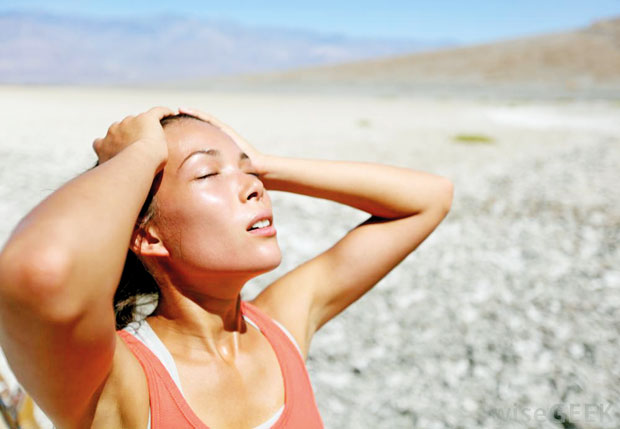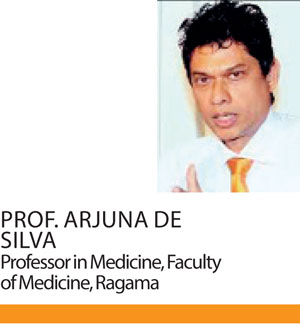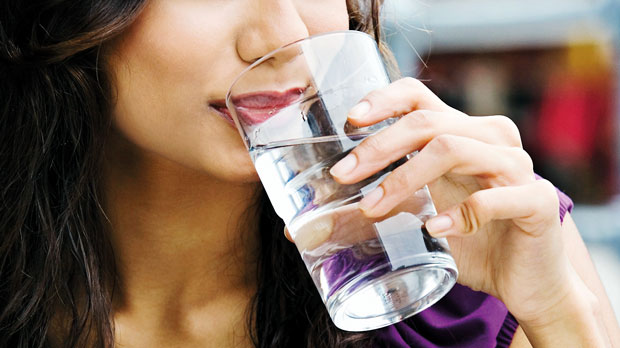24 Nov 2017 - {{hitsCtrl.values.hits}}

 In this day and age due to climate change and global warming, we often experience very hot weather when the rainy season is over. The busy lives people lead at present make them forget to have a regular intake of water. This can cause dehydration. According to Prof. Arjuna de Silva, Professor in Medicine, Faculty of Medicine, Ragama, Dehydration happens when the amount of fluids required by the body to maintain normal functions are inadequate. When not addressed it can even result in death.
In this day and age due to climate change and global warming, we often experience very hot weather when the rainy season is over. The busy lives people lead at present make them forget to have a regular intake of water. This can cause dehydration. According to Prof. Arjuna de Silva, Professor in Medicine, Faculty of Medicine, Ragama, Dehydration happens when the amount of fluids required by the body to maintain normal functions are inadequate. When not addressed it can even result in death.
How does it happen?
Speaking of how dehydration can be present Prof. de Silva said, “Dehydration can happen in two basic ways, either the intake of liquids is inadequate or the loss of it is too much. When considering instances of inadequate intake, this can happen; when the patient is fasting or the patient is not taking enough fluids when training or is in the desert where there is no source of water or liquids. Secondly it could be due to the increase in loss, for instance, when you have long vomiting or diarrhea. Then you can get dehydrated. The other thing is when you have more than 70% burns (which is a rare scenario). This condition makes you lose fluids from your skin. When you experience excessive sweating you lose lots of fluids. Heatstroke and dehydration can go hand in hand, especially when you’re contesting a marathon or engaged in an outdoor activity in the hot sun,”he explained.
Signs, symptoms and complications
Citing the signs and symptoms that come with dehydration Prof. de Silva explained that they can vary according to the degree of dehydration the patient is in. “Initially the patient will feel dizzy, will feel weak, will experience nausea, when putting the tongue out it will be dry and there will be headaches. It all depends on the degree of illness which may range from mild to severe,” he said.
Prof. de Silva further explained the complications that can occur with dehydration. “When you are in the severe stages you can sometimes get heart arrhythmias which is when there is a difference in the heartbeat, you can get confused, fall into a coma or you can even die,” he affirmed.
Explaining what can happen to your body when you are dehydrated he said, “When there is dehydration, the cells will start to shrink, including the brain cells (depending on the degree of dehydration). It can even result in death. For instance cholera, which we don’t see much of now, patients with this condition die due to severe diarrhea. And if you can’t give IV fluids, you get dehydrated and you die,” Prof. de Silva said.
Who is at risk?
Speaking of who is at risk of getting dehydrated Prof. de Silva said, “Generally it is the two extremes of age, very young infants (children who can’t communicate) and the elderly because of similar reasons. And people who are engaged in outdoor activities such as farming, athletes, soldiers. They are at high risk. Therefore, you can say that it depends on your age and your profession,” he further explained.
Speaking on the illnesses that cause dehydration he said, “Cholera is an extreme example of an illness causing severe dehydration and death. In such an illness there are watery stools and absolute severe diarrhea. Anything that causes vomiting and diarrhea can bring about dehydration,” the professor said.
He further explained that there are certain medications that can cause dehydration, “If you take diabetic pills or water tablets then you pass an excessive amount of urine, hence you can get dehydrated,” he said.

Treatment
Prof. de Silva continued to speak about the treatment for dehydration and said, “The treatment is that the patient should take fluids. If the patient can’t take fluids then you will have to give it to him/her through an IV. It really depends on how the patient is losing the fluids. If he/she is vomiting you lose water and electrolytes, so instead of pure water sometimes you may have to give something like jeevani and thambili, to replace the fluids. Water can also be used. But to chose the treatment option you must look into the cause of the dehydration first,” he explained. Prof. de Silva further advised people to drink water regularly especially before engaging in outdoor activities that can cause excessive amounts of sweating.
23 Dec 2024 47 minute ago
23 Dec 2024 56 minute ago
23 Dec 2024 1 hours ago
23 Dec 2024 2 hours ago
23 Dec 2024 3 hours ago